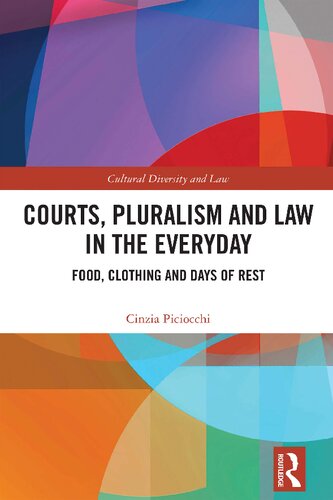

Most ebook files are in PDF format, so you can easily read them using various software such as Foxit Reader or directly on the Google Chrome browser.
Some ebook files are released by publishers in other formats such as .awz, .mobi, .epub, .fb2, etc. You may need to install specific software to read these formats on mobile/PC, such as Calibre.
Please read the tutorial at this link: https://ebookbell.com/faq
We offer FREE conversion to the popular formats you request; however, this may take some time. Therefore, right after payment, please email us, and we will try to provide the service as quickly as possible.
For some exceptional file formats or broken links (if any), please refrain from opening any disputes. Instead, email us first, and we will try to assist within a maximum of 6 hours.
EbookBell Team

4.7
96 reviewsThis book examines the everyday judicial experience in four multicultural jurisdictions as a means of exploring the relationship between legal systems and cultural identities. Increasing social heterogeneity has deeply affected legal systems as courts and parliaments must now deal with a growing rate of cases concerning cultural pluralism. Headline-grabbing disputes usually concern challenges to fundamental rights and principles which may be put at risk by some religious or cultural practices. These are difficult issues questioning the compatibility between some cultural and religious practices and constitutional values. However, much of the interaction between law and cultural pluralism also concerns daily life activities, which do not necessarily challenge fundamental rights. This book deals with food, clothing and days of rest: three expressions of both human needs and identity which are based on ethnic origin, tradition, culture, religion or, simply, taste. The volume looks at the intersection between these choices and constitutional rights such as religious liberty or freedom of expression. It aims to understand how the state legal system deals with them and when non-mainstreaming behaviours are accommodated. Four legal systems are taken into consideration – the United States of America, Canada, France and Italy – exploring similarities and differences in facing cultural diversity around these quotidian issues. The book pays particular attention to the places where diversity is most apparent and also considers the choices that are not based on religious precepts, but rather on “personal philosophy”. The book will be of interest to researchers, academics and policy-makers working in the areas of constitutional law, law and cultural diversity, human rights, minority rights and discrimination law.